Solar-Powered AC: Cool Down and Save with Renewable Energy
Looking to beat the scorching heat without burdening the electric grid? A solar powered air conditioner may be the answer you’re searching for. This innovative unit harnesses the power of the sun through photovoltaic panels, providing efficient cooling while reducing energy bills.
Whether you opt for a DC unit directly connected to solar panels or an AC unit with an inverter, the benefits are undeniable. From relief during grid overload to eligibility for tax incentives, investing in solar air conditioning can bring you both comfort and savings.
Key Takeaways
- Solar air conditioners offer a solution to the strain on the electric grid caused by excessive reliance on traditional air conditioning.
- Solar-powered air conditioners can be powered by photovoltaic panels or solar-heated water, reducing the need for grid power.
- There are three types of PV-powered air conditioners: DC current, AC current, and hybrids, which can draw power from both solar panels and the grid.
- While solar air conditioners can provide relief during grid overload and blackouts, they require grid connection or battery packs to operate at night and may be impacted by prolonged periods of cloudy or rainy weather.
Understanding Solar Air Conditioners
Solar air conditioners, also known as solar-powered AC units, use photovoltaic panels or solar-heated water to cool the air. These innovative systems harness the power of the sun to provide a sustainable and cost-effective way to beat the heat. With a solar-powered air conditioner, you can enjoy the comfort of cool air while reducing your carbon footprint.
Whether you need a portable solar-powered air conditioner for your van or a solar-powered window unit for your home, there are options available to suit your needs. By investing in a solar-powered air conditioner, you can take advantage of federal tax incentives, save on energy bills, and contribute to a greener future.
Join the growing community of solar-powered air conditioner users and experience the benefits of renewable energy cooling.
Related Post: Community Solar Program: Clean Energy for All.
How Solar Air Conditioners Work
To operate a solar air conditioner at night, you will need to add a battery to store electricity. This allows the air conditioner to continue running when the sun goes down.
Here’s how solar air conditioners work:
- Photovoltaic (PV) panels are used to generate electricity from sunlight.
- The electricity powers the compressor and fan of the air conditioner.
- Hybrid units are available that can use both solar power and grid power.
- Solar thermal air conditioners use solar-heated water to drive the refrigerant.
- Solar air conditioners require some electricity to operate circulation fans, but not as much as conventional units.
By harnessing the power of the sun, solar-powered air conditioners provide relief during grid overload and blackouts. They can also save on energy bills and align with peak cooling needs. However, it’s important to consider factors such as the initial cost, weather conditions, and property suitability when investing in a solar-powered air conditioner.
Overall, if your property receives sufficient sunlight, a solar-powered air conditioner can be a smart and sustainable choice.
Types of Solar-Powered Air Conditioners
Hybrid units of air conditioners can draw power from both solar panels and the grid. These solar-powered air conditioners offer a cost-effective and environmentally-friendly solution for cooling your space.
Whether you have an RV or a car, there are solar-powered air conditioner options available for you. You might be wondering, ‘Is there a solar-powered air conditioner for me?’ The answer is yes! There are various types of solar-powered air conditioners to suit different needs.
From DC units that use direct DC power output from solar panels to AC units that utilize the 120-volt AC signal from the power grid with an inverter, you have choices. Hybrid units provide the flexibility of utilizing both solar panels and grid power.
As for the cost, it varies depending on the type and capacity of the air conditioner. On average, a solar-powered air conditioner can range from $1,500 to $8,000. So, if you’re looking to reduce your carbon footprint and save on energy bills, investing in a solar-powered air conditioner might be the right choice for you.
Pros of Solar-Powered Air Conditioners
Investing in a solar-powered air conditioner can provide relief during peak demand and blackout situations. Here are some key benefits of solar-powered air conditioners:
- Energy savings: By harnessing solar power, you can reduce your energy bills and save money in the long run.
- Environmental impact: Solar air conditioners use renewable energy, reducing your carbon footprint and contributing to a greener future.
- Federal incentives: Take advantage of the 30% solar tax credit to make solar air conditioners more affordable.
Solar-powered air conditioners are becoming increasingly popular due to their ability to provide cooling while minimizing reliance on the electric grid. With advancements in technology, solar air conditioners are now more efficient and cost-effective than ever before.
Cons of Solar-Powered Air Conditioners
If you live in a shaded area or a climate zone unsuitable for solar air conditioners, their effectiveness may be limited. While solar-powered air conditioners offer numerous benefits, it’s important to consider their drawbacks as well. Take a look at the table below to understand the cons of solar-powered air conditioners:
| Cons of Solar-Powered Air Conditioners |
|---|
| Limited operation at night without grid connection or battery packs |
| Higher initial cost compared to conventional units |
| Performance impacted by prolonged cloudy or rainy weather |
Despite these limitations, investing in a solar-powered air conditioner can still be a wise decision if your property receives sufficient sunlight. It can reduce energy bills, increase property value, and contribute to the stability of the electric grid. While solar air conditioners may have some drawbacks, their overall benefits make them a valuable addition to sustainable living.
Cost-Benefit Analysis of Solar Air Conditioners
To determine if a solar air conditioner is a worthwhile investment, you should consider the cost-benefit analysis. Here are some factors to consider:
Initial Cost:
- Solar air conditioners have a higher upfront cost compared to conventional units.
- However, federal tax incentives, like the 30% solar tax credit, can make them more affordable.
Energy Savings:
- Solar air conditioners can significantly reduce your energy bills by using renewable solar power.
- Integration with existing PV systems can further save on materials costs.
Grid Stability:
- Solar air conditioners help relieve strain on the electric grid during peak demand and blackouts.
- By using solar power, you contribute to a more stable and reliable grid.
Considering these factors, a solar air conditioner can be a wise investment if your property receives sufficient sunlight. It not only reduces energy costs but also increases property value and supports a sustainable future.
Solar Air Conditioners Vs. Conventional Units
When comparing solar air conditioners to conventional units, it’s important to consider factors such as upfront costs, energy efficiency, and grid stability. Solar air conditioners utilize renewable energy from the sun, reducing reliance on the electric grid and lowering carbon emissions.
While the initial cost of purchasing and installing a solar air conditioner is higher than conventional units, it can provide long-term savings through reduced energy bills. They also offer relief during grid overload and blackouts, contributing to the stability of the electric grid.
Additionally, integrating a solar air conditioner with existing PV systems can save on materials costs. However, it’s crucial to note that prolonged periods of cloudy or rainy weather can impact their performance, and shaded properties or unsuitable climate zones may limit their effectiveness.
| Pros | Cons |
|---|---|
| Provides relief during grid overload and blackouts | Requires grid connection or battery packs to operate at night |
| Reduces energy bills and reliance on the electric grid | Higher upfront costs compared to conventional units |
| Can integrate with existing PV systems | Performance can be affected by weather conditions |
| Aligns with peak cooling needs | Limited effectiveness in shaded properties or unsuitable climate zones |
Best Practices for Using Solar Air Conditioners
One important practice for maximizing the efficiency of solar air conditioners is regular maintenance and cleaning of the PV panels. By keeping the panels clean, you can ensure optimal sunlight absorption and prevent any dust or debris from blocking the solar cells.
In addition to cleaning, it is crucial to inspect the panels regularly for any signs of damage or wear. If you notice any cracks or defects, it is essential to repair or replace them promptly to maintain the system’s performance.
Another important practice is to monitor the system’s performance regularly. By keeping track of the energy output and temperature levels, you can identify any issues or inefficiencies and take corrective measures.
Lastly, it is recommended to consult with a professional technician for regular maintenance and servicing to ensure the long-term functionality and reliability of your solar air conditioner.
Maintenance & Troubleshooting of Solar Air Conditioners
Regular maintenance is essential for ensuring the optimal performance and longevity of your solar air conditioner. By following a maintenance schedule and troubleshooting any issues that may arise, you can maximize the efficiency and reliability of your system. Here are some key maintenance tasks to keep in mind:
| Maintenance Tasks | Frequency | Benefits |
|---|---|---|
| Clean solar panels | Annually | Improves solar panel efficiency and overall system performance |
| Check electrical connections | Quarterly | Prevents loose connections and ensures proper power flow |
| Inspect and clean air filters | Monthly | Increases airflow and reduces strain on the system |
| Check refrigerant levels | Annually | Maintains proper cooling capacity and prevents system damage |
| Monitor system performance indicators | Regularly | Identifies potential issues and allows for timely troubleshooting |
Related Post: Cleaning Solar Panel for Its Maximum Efficiency and Sustainability.
Key Considerations for Solar Air Conditioners
If you’re considering a solar air conditioner, it’s important to evaluate your property’s sunlight exposure and climate to determine if it’s a suitable option for you. Here are some key considerations to keep in mind:
- Sunlight exposure: Assess the amount of sunlight your property receives throughout the day. Solar air conditioners rely on solar panels to generate electricity, so a sufficient amount of sunlight is crucial for optimal performance.
- Climate: Consider the climate in your area. Solar air conditioners work best in sunny and hot climates, where cooling needs are high and sunlight is abundant. In regions with frequent cloudy or rainy weather, the performance of solar air conditioners may be affected.
- Property suitability: Assess the suitability of your property for solar air conditioner installation. Shaded areas or properties in unsuitable climate zones may limit the effectiveness of solar air conditioners.
Frequently Asked Questions
Are Solar Air Conditioners Able to Cool a Room as Effectively as Conventional Units?
Solar air conditioners can cool a room as effectively as conventional units. They use photovoltaic panels or solar-heated water to power the compressor and fan. They may require a grid connection or battery packs for nighttime operation.
Can Solar Air Conditioners Be Used in Areas With Limited Sunlight or a High Amount of Shade?
Solar air conditioners may not be suitable for areas with limited sunlight or excessive shade. Their effectiveness relies on sunlight to generate power, making them less efficient in such conditions.
How Much Can I Expect to Save on My Energy Bills by Using a Solar Powered Air Conditioner?
You can save a significant amount on your energy bills by using a solar air conditioner. The exact amount will depend on factors such as your location, energy usage, and the size and efficiency of the system.
Is It Possible to Use a Solar Powered Air Conditioner Without Being Connected to the Electric Grid?
Yes, you can use a solar air conditioner without being connected to the electric grid. By adding a battery, the air conditioner can operate at night or during blackouts, providing continuous cooling.
What Is the Average Lifespan of the Photovoltaic Panels Used in Solar Air Conditioners?
The average lifespan of photovoltaic panels used in solar air conditioners is around 30 years. However, severe weather and corrosive air can shorten their lifespan. Consider the suitability of your property’s climate before investing in solar air conditioning.
Conclusion
Investing in a solar powered air conditioner can be a wise decision for those seeking to cool their homes while reducing energy consumption. These innovative systems not only provide relief during peak demand and blackouts but also offer potential savings on energy bills.
It is worth noting that solar powered air conditioners are eligible for federal tax incentives, further adding to their appeal. While they may require a grid connection or battery packs for nighttime operation and involve a higher initial cost, the benefits of increased property value and contribution to grid stability make them a compelling choice.
According to recent studies, solar air conditioners can reduce electricity consumption by up to 50%, making them a sustainable and efficient solution for cooling needs.
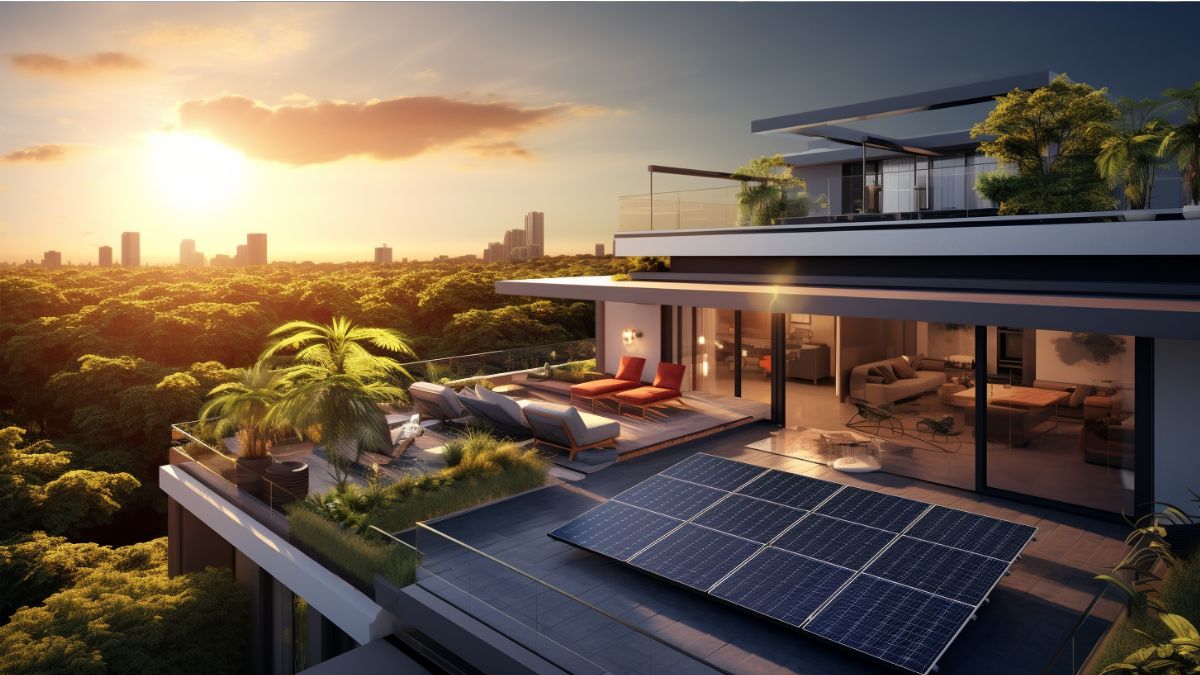
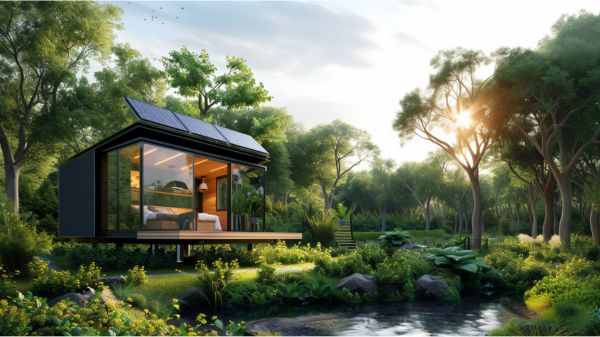
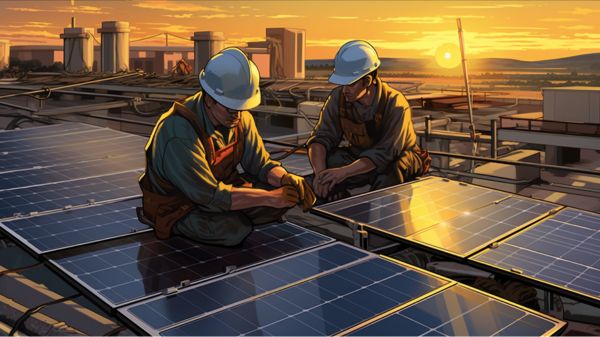
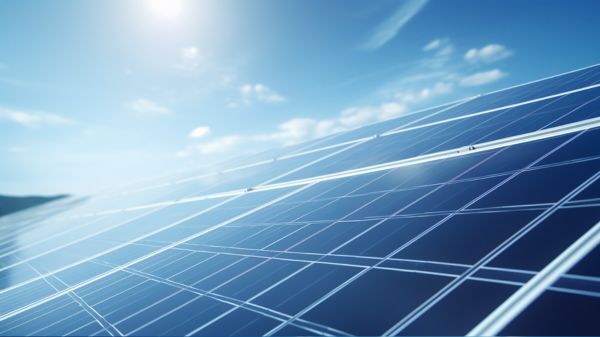
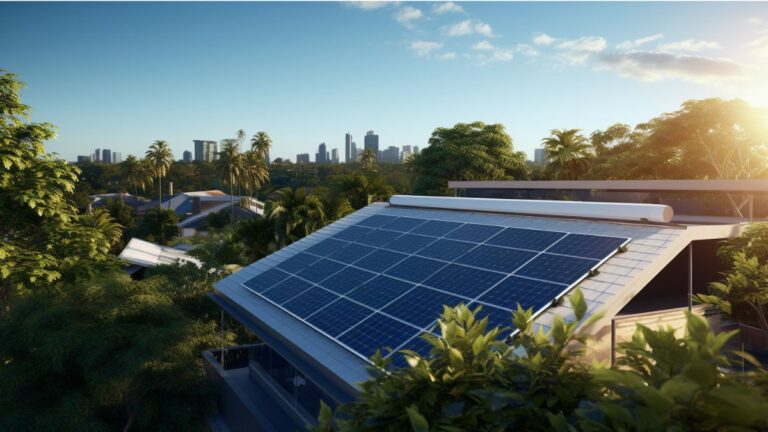
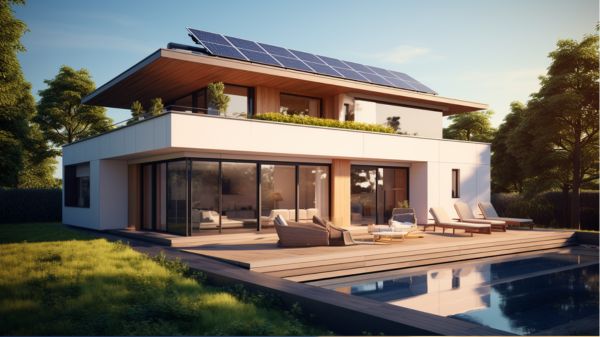
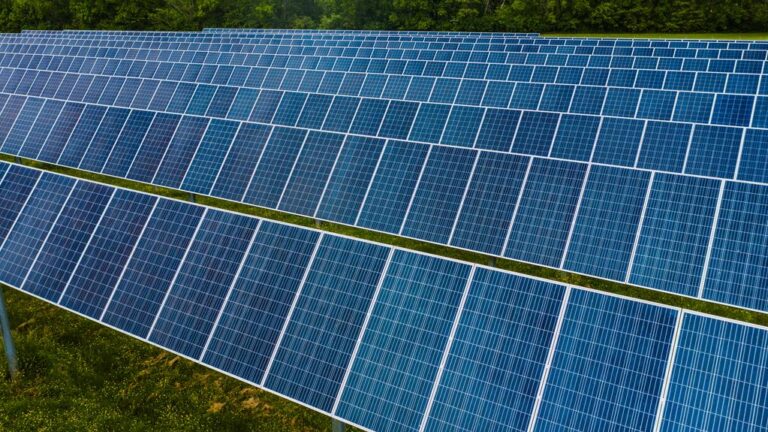
3 Comments
Comments are closed.